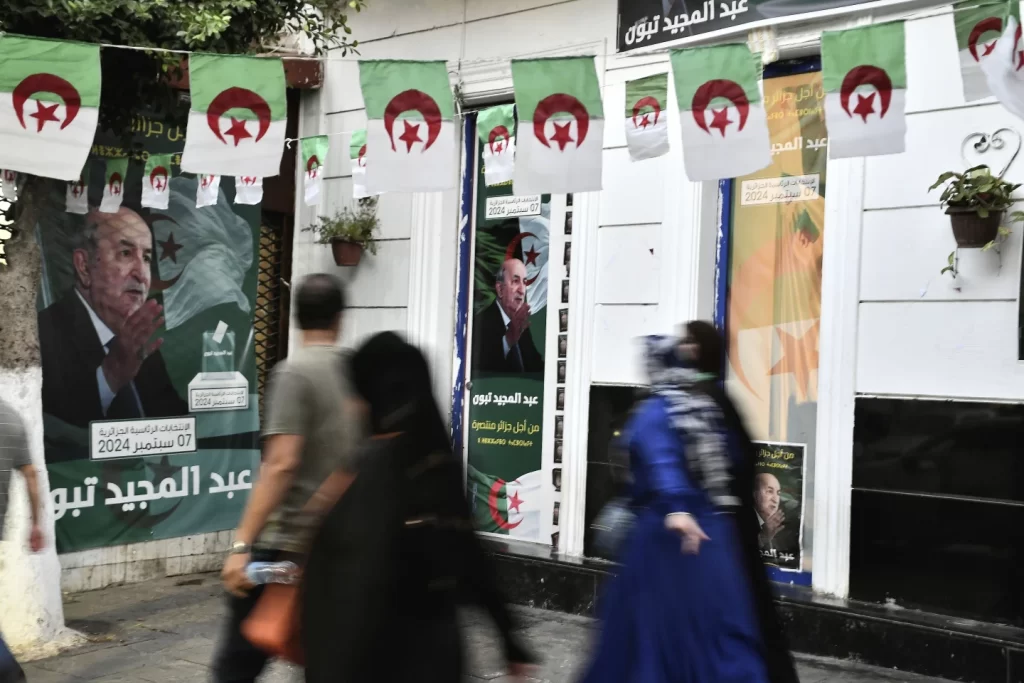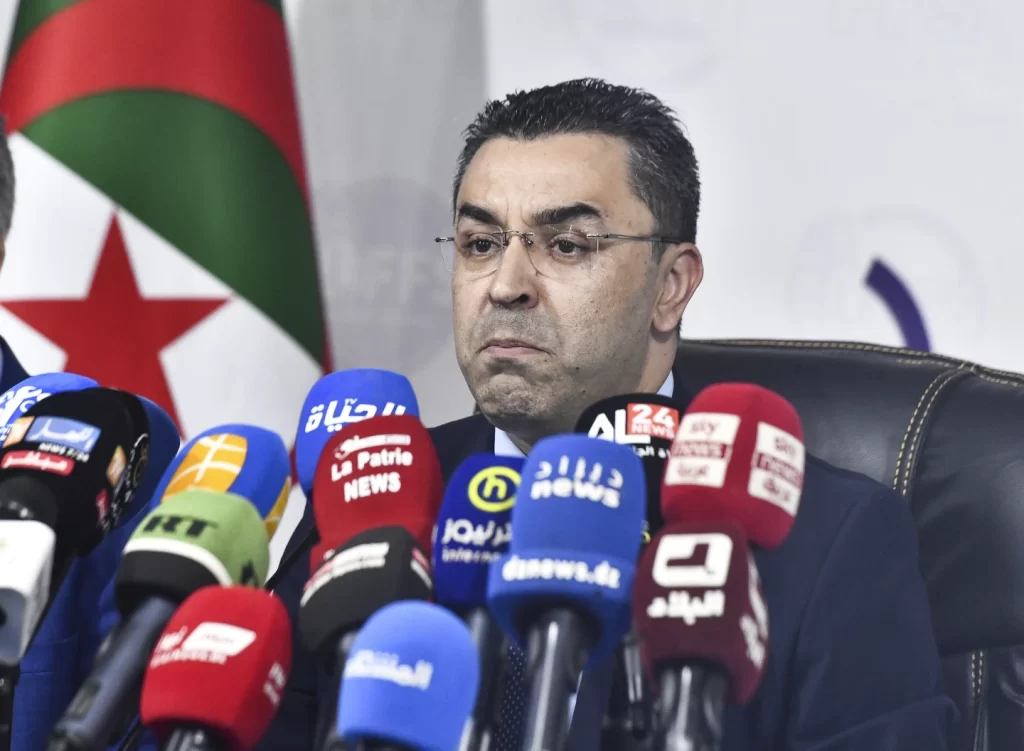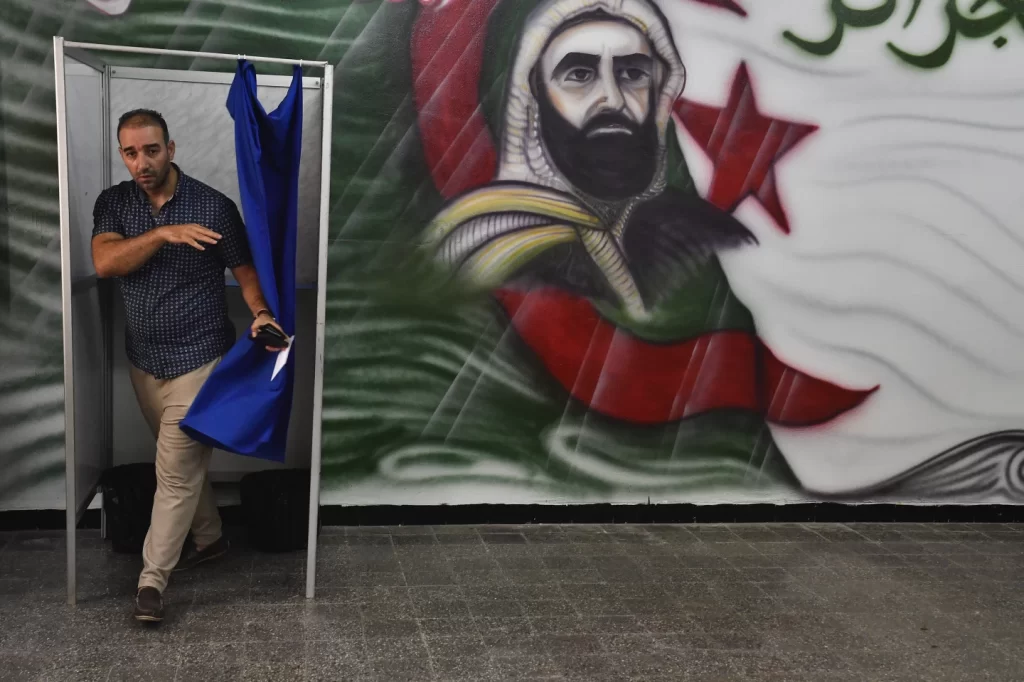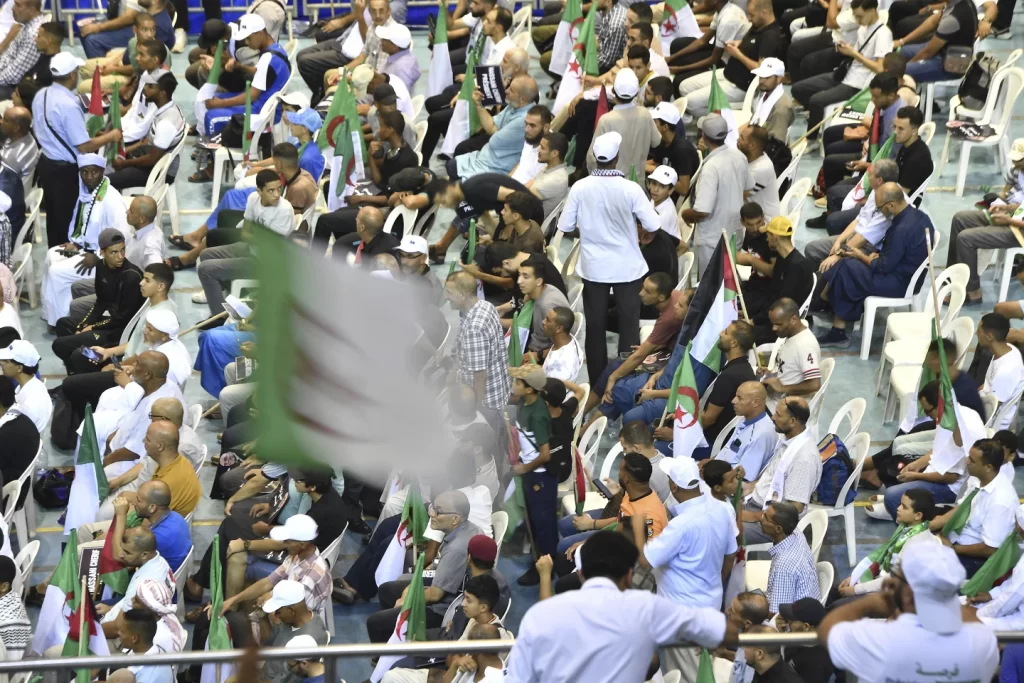Two opposition candidates in Algeria’s recent presidential election have formally challenged the provisional results, filing appeals with the country’s Constitutional Court on Tuesday. The legal action comes amid harsh criticism of election officials and disputes over the vote count that saw incumbent President Abdelmadjid Tebboune secure a landslide victory with 94.7% of the vote.

Islamist candidate Abdellali Hassani Cherif and socialist Youcef Aouchiche submitted their appeals, initiating the first step in the legal process to contest the election results. Under Algerian law, the Constitutional Court has 10 days from the announcement of provisional results to rule on the appeals.
Cherif, speaking before filing his appeal, criticized Mohamed Charfi, the President of Algeria’s National Independent Electoral Authority (ANIE), for the manner in which the election results were reported. “President Tebboune didn’t need this stuffing. We knew he’d be reelected, but with these results, ANIE hasn’t done him any favors,” Cherif stated. He added, “We want our votes — the votes of the people who voted for us — to be returned to us. I know it won’t change the outcome of the vote, but it will go down in history.”
Aouchiche held a news conference where his campaign manager presented graphics allegedly proving result distortion, calling the outcome a “shameful and gross manipulation.” The socialist candidate declared, “These results, which do not correspond at all to the number of votes communicated to us by the regional delegations of the same ANIE, are a disgrace for the Algeria of 2024, taking us back to the 1970s,” referencing an era when Algeria’s single-party system ran unopposed candidates.

Both challengers have highlighted discrepancies between the number of votes used to calculate results and the turnout figures published by election officials a day earlier. Surprisingly, President Tebboune himself joined in criticizing ANIE late Sunday, aligning with the popular discontent his challengers had stirred up against the electoral body.
The independence of ANIE has come under scrutiny, particularly after it reported that Tebboune had won with a larger share of the vote than Vladimir Putin in Russia’s March presidential election. This has led to speculation in local media about potential power struggles within Algeria’s ruling elite.

The regional daily newspaper, the Republican East, lambasted Charfi as a “troublemaker” who had “discredited the election.” Meanwhile, former Communications Minister Abdelaziz Rahabi commented on social media platform X, “What I feared and denounced has happened. The country has become ungovernable because of its failure to satisfy the Hirak’s key demands and the shuttering of political and media spheres.”
The Hirak, a pro-democracy movement that ousted Tebboune’s predecessor five years ago, had called for a boycott of the vote. Despite this, the movement’s critiques of the political system have gained renewed attention in light of the election’s controversial outcome.

As the Constitutional Court considers the appeals, it could potentially require ANIE to recalculate each candidate’s vote totals. However, such a ruling is unlikely to affect Tebboune’s overall victory, for which he has already received congratulatory messages from Algeria’s foreign allies.
The election controversy underscores ongoing tensions in Algeria’s political landscape, highlighting the challenges the country faces in its journey towards democratic reform and transparent governance.
AP



